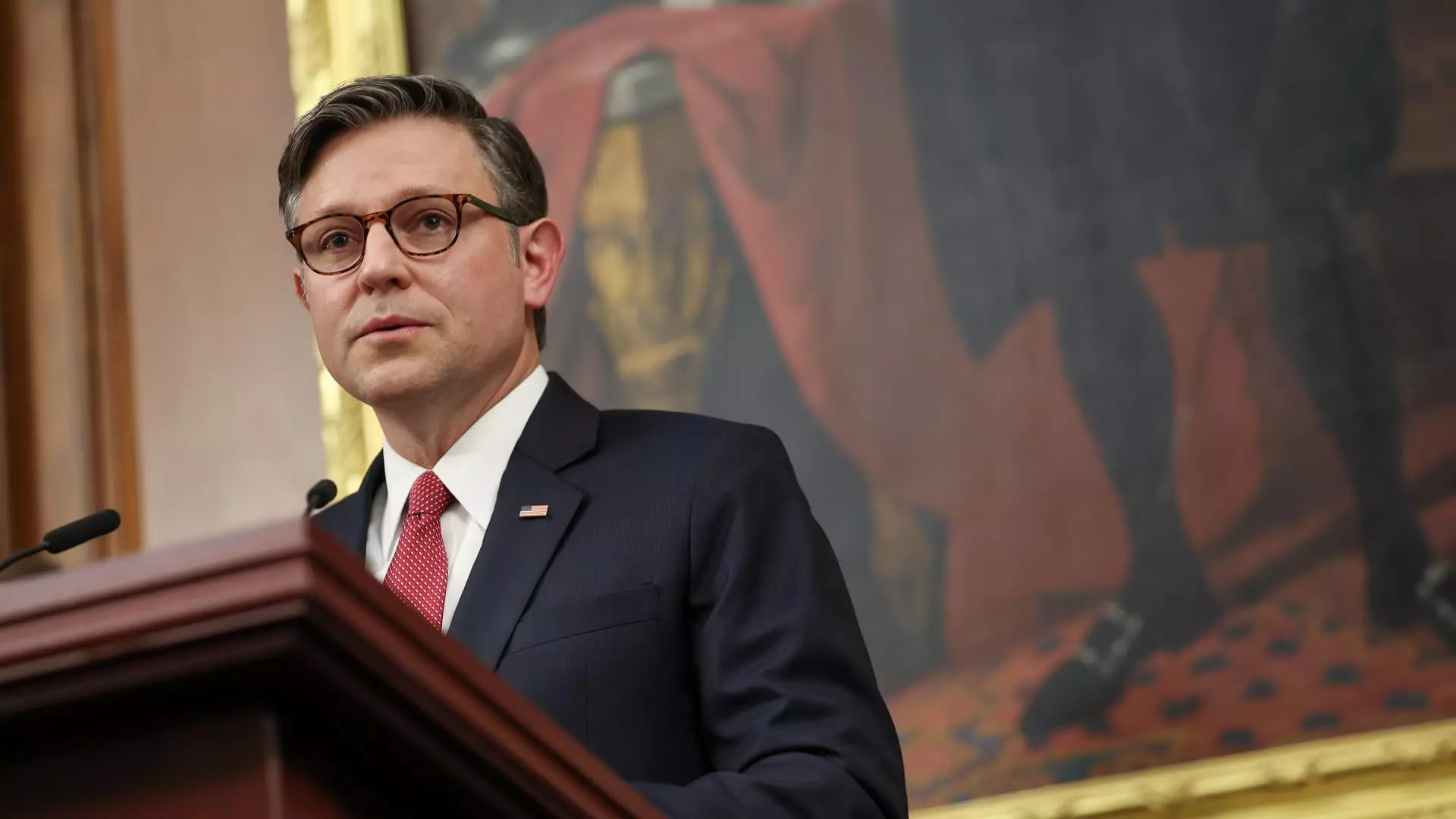In recent political discourse, the delicate balance of power between Congress and the President has come under intense scrutiny. Highlighting this fragile balance, House Speaker Mike Johnson’s recent declaration that the War Powers Act is unconstitutional reveals a disturbing trend that prioritizes unrestrained executive action over constitutional fidelity. This bold assertion raises deep concerns, as it not only enables aggressive military action without requisite congressional oversight but also undermines the very fabric of democratic governance.
Johnson’s argument—that President Trump’s decision to strike Iranian nuclear targets was a justified exercise of his powers under Article II of the Constitution—is alarming. While the Constitution indeed designates the President as commander in chief, it also grants Congress the exclusive authority to declare war. The current conflict in the Middle East, particularly with Iran, underscores an ongoing constitutional crisis stemming from decades of legislative vacuity regarding war declarations. Since World War II, Congress has scarcely invoked its constitutional role, leading to an unprecedented expansion of presidential war-making latitude.
Historical Context and Constitutional Implications
The War Powers Resolution of 1973 was enacted in response to the perceived overreaches of executive power, particularly during the Vietnam War—a clear attempt to reassert legislative authority over military engagements. Ironically, Johnson’s dismissal of this resolution as unconstitutional reflects a historical pattern wherein successive administrations have incrementally eroded the barriers to unilateral military action. Constitutional scholars have long debated the tensions between Article I and Article II, yet the current interpretation by Johnson and his allies pushes the boundaries of executive prerogative further than ever, placing unprecedented trust in the President’s discretion.
Moreover, the absence of a formal war declaration for the ongoing conflicts in the Middle East signifies a dangerous precedent. The implications of bypassing Congress not only set a disturbing trajectory for future military interventions but also risk normalizing a worldview where the executive branch operates with unchecked authority. The constitutionally enshrined principle of checks and balances is being challenged by a dangerous normalization of presidential overreach, and the implications could reverberate through future governance.
Political Infighting and Public Responsibility
The politically charged atmosphere surrounding the War Powers resolution introduced by Representatives Thomas Massie and Ro Khanna underscores the difficulties of navigating dissent within the political landscape. Despite the bipartisan support for a mechanism to prevent unauthorized hostilities in Iran, Johnson’s resistance reflects not only party alignment but an adherence to a perilous institutional trend. As public trust in governmental institutions wanes, the American electorate must grapple with the consequences of leadership that operates within increasingly elastic interpretations of power.
This political infighting, pitched against the backdrop of President Trump’s scathing remarks about Massie, illustrates a deeper malady affecting contemporary governance: the tendency for political allegiance to supersede principled action. Rather than engaging in meaningful dialogue around the War Powers Resolution, leaders are resorting to ad hominem tactics that distract from crucial discussions about the appropriate use of military force and the role of Congress in safeguarding democratic processes.
The Role of Public Discourse in Democracy
The stakes in these discussions extend beyond mere legislative maneuvers; they implicate fundamental questions about the democratic fabric and the role of public discourse in shaping policy. As citizens, we should cultivate an informed understanding of the powers our government wields, especially when it comes to matters of war and peace that affect lives both domestically and internationally.
The complex interplay of power dynamics calls for an engaged citizenry demanding accountability from all branches of government. When faced with unilateral military actions, public pressure must serve as a corrective mechanism to ensure that the voices of dissent and oversight resonate amidst a cacophony of partisan rhetoric.
To preserve the ideals of our democracy, it is imperative to advocate for transparency and oversight in military engagements while challenging narratives that seek to undermine the legislative authority bestowed by the Constitution. The path forward must be paved with a commitment to public accountability, robust debate, and staunch adherence to democratic principles.

Leave a Reply